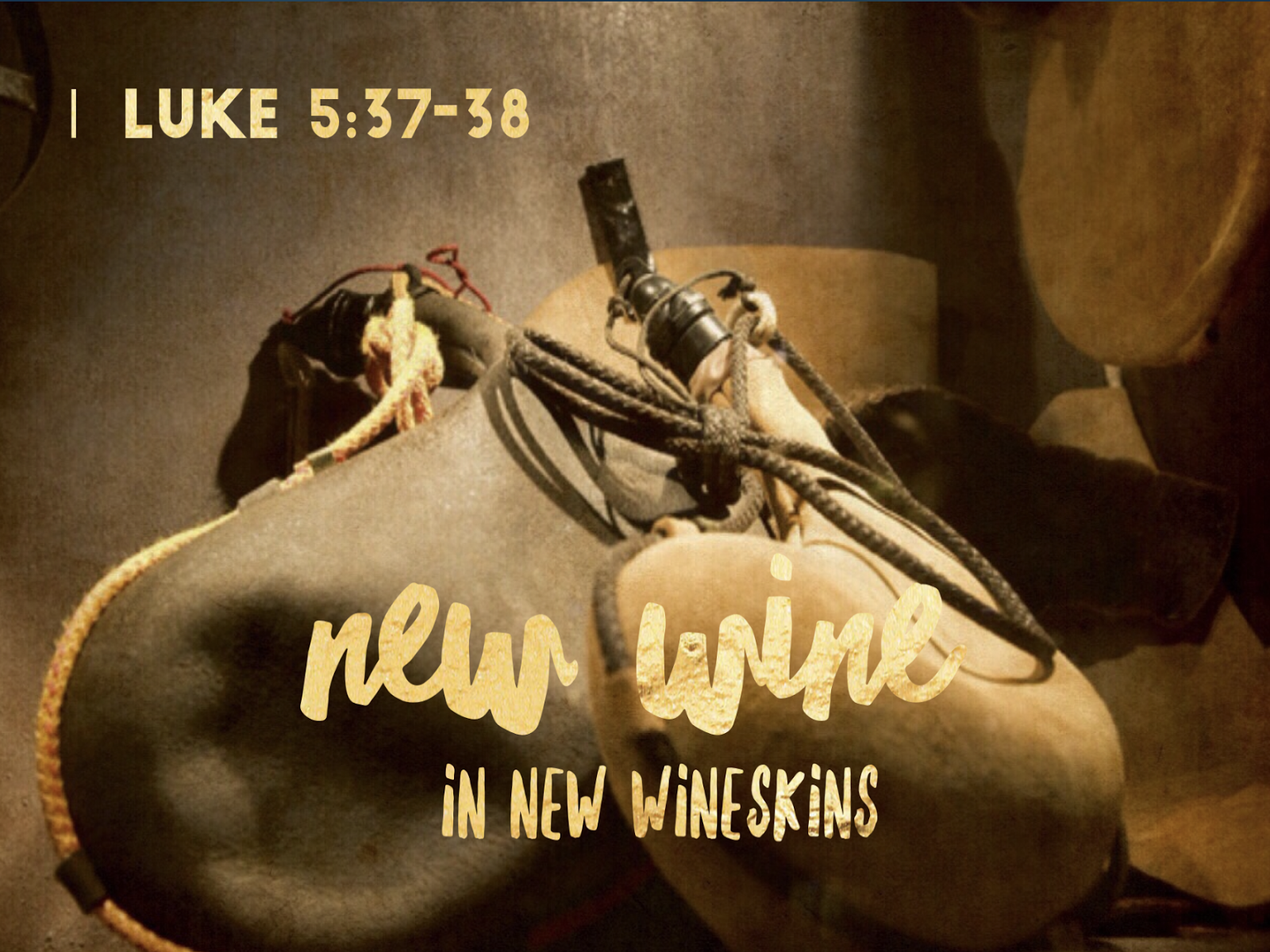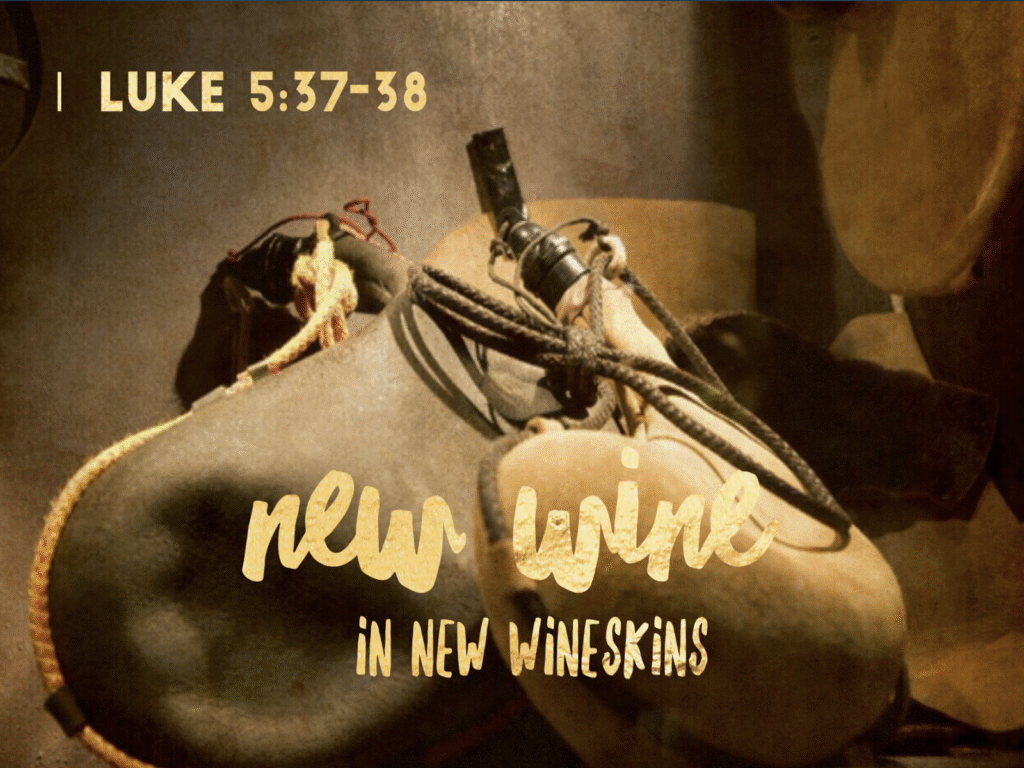Physical Address
304 North Cardinal St.
Dorchester Center, MA 02124
Physical Address
304 North Cardinal St.
Dorchester Center, MA 02124
With Michael Walker
With Michael Walker

A message to The New Creation….

The Problem with Old Wineskins
There comes a time in every generation when the language of faith must be reevaluated—not because the truth has changed, but because the labels we’ve wrapped around that truth have. Words once pure become polluted. Names once sacred become social tokens. Titles once rooted in spiritual power become hollow, institutional echoes. Such is the case with the word “Christian.” What was once a simple designation of those who followed the Messiah has become an umbrella term large enough to cover heresy, hypocrisy, and lifeless religion. It is a word that now wraps both wheat and tares, both the truly born-again and the dead in spirit. And herein lies the problem: the label “Christian” can still cover the old man. It can still fit the unregenerate. But the new creation—the one who has been fused with the breath and Word of God—cannot be contained by it.
Jesus Himself taught the principle we now must apply. In Luke 5:37–38 (NASB), He said: “And no one puts new wine into old wineskins; otherwise the new wine will burst the skins and it will be spilled out, and the skins will be ruined. But new wine must be put into fresh wineskins.” This isn’t just a teaching about flexibility or tradition. It is a spiritual law: the new thing God is doing requires a new container to hold it. The old cannot stretch to contain the resurrected life. The old will burst when pressured by the anointing of the Spirit. And the word Christian—though not evil—has become an old wineskin, stretched too thin, cracked by misuse, and unable to hold the potency of the indwelling reality Christ died to give us.
This deep dive is not an attack on the word Christian, but an unveiling of its limitation. It is a call to adopt a new wineskin, one that reflects the full truth of who we are after the resurrection, after Pentecost, after the outpouring of the Holy Spirit. That word is Pneumocryst. It is not a trendy title. It is a theological necessity. It is a vessel formed to hold the reality of the new creation—the one who is not merely a follower of Christ, but a carrier of Christ. The one in whom the Pneuma (Spirit) and Christos (Anointed Word) are fused. The one who is no longer defined by belief alone, but by transformation.
This is the wineskin that doesn’t crack under the weight of indwelling glory. This is the language of the remnant. This is the identity of the born-again, Spirit-sealed, Word-possessing believer in the post-resurrection era. “Therefore if anyone is in Christ, this person is a new creation; the old things passed away; behold, new things have come” (2 Corinthians 5:17, NASB). We are no longer the old man with a new title. We are the new man who requires a new vessel. The wineskin has changed—because the wine has changed.
What Is a Christian? (Biblical and Historical Context)
The word Christian (Greek: Christianos) is found only three times in the entire Bible—Acts 11:26, Acts 26:28, and 1 Peter 4:16. It was never a title Jesus gave to His disciples, nor one that the apostles commonly used to describe themselves. In fact, its first use was likely derogatory. In Acts 11:26 (NASB), we read: “And when he had found him, he brought him to Antioch. For an entire year they met with the church and taught considerable numbers of people; and the disciples were first called Christians in Antioch.” The word was applied to followers of Jesus by outsiders, likely as a label of mockery or alien categorization. It meant simply, “those belonging to Christ,” or “followers of Christ,” but carried no inherent meaning of Spirit-indwelling or transformation.
This distinction is critical. To be called a Christian in the first century was to be known by your association with a controversial figure. It was an external label—a social tag—not necessarily a spiritual reality. In today’s world, the word is even more diluted. It has been adopted by political figures, cultural institutions, and individuals who live lives diametrically opposed to Christ’s teachings. The word has become elastic—stretching to include the regenerate and unregenerate alike, the convicted and the casual, the born-again and the merely churched. In essence, Christian has become a label that wraps the old man without requiring the new birth.
Jesus warned of this very danger when He said in Matthew 7:21–23 (NASB): “Not everyone who says to Me, ‘Lord, Lord,’ will enter the kingdom of heaven, but the one who does the will of My Father who is in heaven will enter. Many will say to Me on that day, ‘Lord, Lord, did we not prophesy in Your name…?’ And then I will declare to them, ‘I never knew you; leave Me, you who practice lawlessness.’” The sobering reality is that many who carry the label Christian do not carry Christ.
What Is a Pneumocryst? (Revealed Identity of the New Creation)
Pneumocryst is a word born not of tradition, but of revelation. It was formed from two ancient and sacred roots: Pneuma (Spirit, breath, wind) and Christos (the Anointed One). This word—Pneumocryst—was coined not to be clever, but to be correct. It was forged in response to a spiritual need: the need to name the vessel that God now fills, post-resurrection. While Christian is a term that speaks of following, Pneumocryst speaks of fusion—of divine indwelling.
A Pneumocryst is not just a believer in Christ; it is a person in whom the Spirit and the Word have crystallized. It is the new creation made possible only after Jesus died, rose again, ascended, and sent His Spirit to indwell mankind. “In Him, you also, after listening to the message of truth, the gospel of your salvation—having also believed, you were sealed in Him with the Holy Spirit of the promise” (Ephesians 1:13, NASB). The Pneumocryst is sealed, not labeled. Transformed, not titled. Reborn, not religious.
This is not about elitism. It is about accuracy. The believer is not a better version of the old self—they are someone new altogether. As Galatians 2:20 (NASB) declares: “I have been crucified with Christ, and it is no longer I who live, but Christ lives in me.” A Pneumocryst does not follow from a distance—they live from the inside out. They are temples of the Holy Spirit (1 Corinthians 3:16). They are not fans of Jesus; they are flames that carry His fire. The Pneumocryst does not belong to Christ—they embody Him.
Why the New Creation Needed a New Wrap
It is no exaggeration to say that what is happening now is prophetic. Just as new wine requires new wineskins, the outpouring of God’s Spirit in these last days is requiring a new identity to carry it. The term Christian, though historically useful, is no longer sufficient to hold the weight of this divine indwelling. It can no longer contain the fire of the Spirit, the Word etched on hearts, or the breath of God filling human lungs. That’s why a new term was needed. Not to replace scripture, but to restore understanding. Not to elevate self, but to articulate truth.
Pneumocryst is the name of the new wineskin. It is a word that cannot be worn by the unregenerate or falsely claimed by the religious. It is a designation that demands internal transformation, because it describes what only God can create. This new creation does not wrap itself in the old man’s clothes. It does not settle for borrowed labels. It requires a divine identity, authored by the breath and voice of God. Pneumocryst is that identity. And if there is to be a remnant in this age—set apart, fire-filled, Spirit-anchored—it will not be known by what it claims to follow, but by what it carries.
The Identity That Holds the Fire
The time has come to shed the brittle wrapping of man-made categories. The time has come to embrace the wineskin that was made for the wine God is pouring now. The label Christian may still have value for some, but it cannot contain the fullness of the new creation birthed in Christ, sealed by the Spirit, and destined for glory. That creation needs a new name, a new covering, a new declaration. That creation needs Pneumocryst.
This is not about a name change—it is about a nature change. We are not just followers of Christ; we are vessels of Him. Not imitators, but partakers. Not servants only, but sons. And what the world needs now is not another sermon—it needs a living demonstration. A people who not only profess the Word, but possess it. A generation that is not merely marked by tradition, but indwelt by transformation. A remnant that carries the fusion of breath and anointing. That is the Pneumocryst.
The wineskin has changed, because the wine has changed. Let those who have ears, hear.